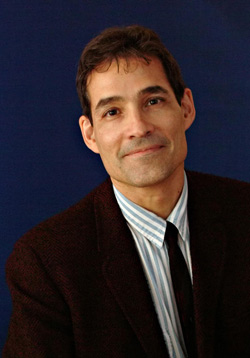Understanding Bereavement
Yet, Kubler-Ross and others notwithstanding, there also is no blueprint series of steps for mourning, Bonanno argues.
Bonanno explores these issues in his new book, The Other Side of Sadness: What the New Science of Bereavement Tells Us About Life After Loss.
“Most of us deal with loss very well,” says Bonanno, who chairs the Department of Counseling and Clinical Psychology at Teachers College. “It is not something that we want to experience. It is painful. It hurts deeply, but we can handle it.”
Bonanno’s findings emerged from hundreds of videotaped interviews with people who had suffered losses. Researchers analyzed the interviews for the mourners’ emotional and physiological responses.
One clear finding: there’s no getting around the need to feel sadness. Being sad draws others to us for sympathy, and it also provides the internal space to reflect on our loved one.
“In sadness, the world slows down,” says Bonanno. “We take stock and recalibrate.”
Bonanno also found that more than half of his subjects exhibited positive emotions while recounting their loss. That was ascertained by observing the mourners’ facial expressions, focusing on the obicularis occuli muscle that surrounds the eye, which contracts involuntarily when we feel genuine positive emotions.
By laughing and smiling, the mourner puts others at ease drew them closer.
“Sadness helps us turn inward and process what has happened,” he says. “Then we come out of it and put it away for a little bit. But we also are able to have laughs and smiles. So it is a way of bonding with other people or rewarding other people for being with us.”
Bonanno came to Teachers College a decade ago as his exploration of grief and mourning deepened. A prolific writer, Bonanno has published 23 peer-reviewed articles on these issues since 2007, part of career in research and writing that dates back to the late 1980s when he studied for his doctorate at Yale University.
Bonanno’s research has challenged the views of some psychologists who argue that there are stages of bereavement that people must experience in what’s called the “work” of mourning. Those theorists, says Bonanno, have focused on the minority of people who have trouble overcoming a loss. Bonanno says his research shows that there’s no one path for coming to grips with the death of a loved one.
“A stage model assumes that everybody goes through the same sequence of stages, and there is nothing like that,” he says. “Grief is very multi-faceted. Some people struggle. Some people cope very well. Some people struggle for a long time. Some people struggle for a short time. There is not a one-size fits all kind of mourning.”
Bonanno says his research comes as a relief to those who contact him after a loved one has died. They have dealt with the death, and moved on without much baggage in tow.
“So many people have written, saying ‘Thank you for saying that I’m OK or that people can be OK, because I’m fine. I wish everybody would leave me alone,’” he says.
His studies of loss have also led him to reflect on his father’s death, which occurred when Bonanno was just 23. During his teenage years, Bonanno had a contentious relationship with his father, a first-generation Sicilian immigrant who yearned to travel but never did because he was devoted to raising a family.
Bonanno left home at 17, and reconciled with his father just before his death. When conducting research in China, Bonanno participated in the traditional Chinese rites of burning paper offerings to honor one’s ancestors.
At a shop, he found a paper facsimile of gold bricks – the fortune his father never found.
“I gave him the stores of wealth he could use anyway he wanted,” says Bonanno. “I brought my family along and it was light and easy and so comforting. I realized it wasn’t so much about the burning of the paper. It was thinking about my father, and that the most important part of it.”
Published Thursday, Nov. 5, 2009
